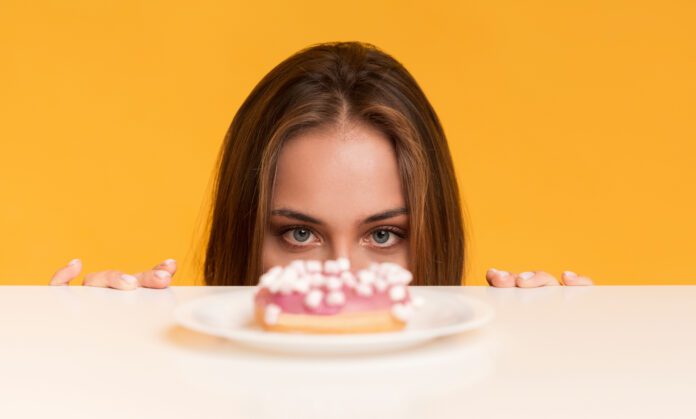As the holidays come around the bend, you may find yourself thinking more often about pecan pie, turkey, stuffing or Grandma’s homemade fudge. But is the sensation of a craving real … or is food just something we think more about at certain times of the year?
According to Brett Wilkinson, a licensed dietitian (LD) at OU Health, cravings are real and multi-factorial.
“Brain chemistry is one of the factors at play,” he says. “When people eat highly palatable foods such as chocolate, chips and French fries, there is an activation in the reward-related dopamine pathway of the brain. Highly palatable or obesogenic foods can be used as pleasure-seeking action, as well as a flight or escape mechanism for negative periods, such as stress.”
Julie Harmon, also an LD at OU Health, agrees that cravings are very real.
“Cravings are frequent, specific, intense desires to eat a particular type of food,” she says. “In general, a craving can signal something is out of balance, but it doesn’t always mean you need a certain type of food. A craving might mean you’re dehydrated, stressed or lacking sleep.”
So why do we always seem to desire foods that are considered ‘unhealthy,’ apart from the fact that they give us a dopamine rush?
“Processed foods are craved more often than natural, whole foods because they’re more reinforcing,” says Harmon. “Research shows that high fat, high calorie, high carbohydrate foods light up reward circuitry in our brain more than foods that are either high in fat or high in carbs as nature might supply them.”
According to Harmon, other research suggests that sugar acts on similar pathways in the brain as addictive substances, which would explain some of our binging behaviors and use of food as a reward.
How Can We Curb?
“First, stop and think: ‘Do I need this?’” suggests Harmon. “You might need salt, for example, if you just finished a heavy workout where you lost a lot of sweat. Or you might have just come off a bad bug and your salt stores are depleted. If that’s the case, your body only needs a very small amount of salt in general.”
Car wouldn’t start or the kids missed the bus? Chances are, food cravings will try to rear their ugly heads on these off-balance days, too.
“Data shows that individuals have greater food cravings and consume more carbohydrates and starches on days when they feel more stress or anxiety,” says Harmon. “In addition, individuals with higher tension reported stronger food cravings – total sweets and fast foods – and consume more of these.”
Wilkinson adds that environment can be a major factor in increased cravings.
“Whether it be from television commercials or the prevalence of the foods in the home, environment can make it increasingly more likely that cravings will occur,” he says. “If the highly palatable foods are within close proximity of a person, it can lead to decision fatigue.”
In short – curbing cravings takes will will power, but it’s entirely doable.
“If you’re having weird cravings, you shouldn’t always give in,” says Harmon. “If you know your body is asking for something you don’t need, take five minutes and do something else. Take a quick walk or talk to a friend. Cravings pass – they really do.”























